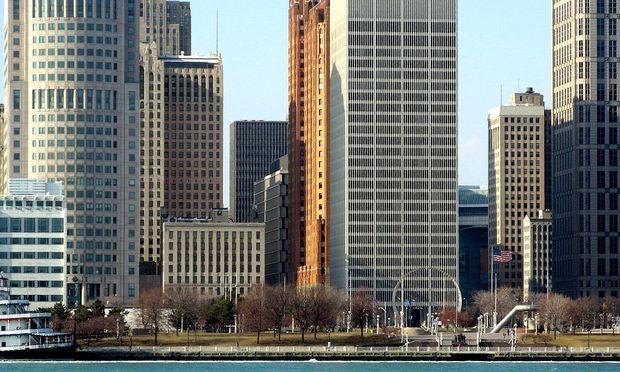Detroit residents remain resilient as city files for bankruptcy
Detroit last week became the largest American city to file for bankruptcy protection. (Photo by Adrea_44 via Wikimedia Commons.)
The once-thriving Motor City, Detroit, became the largest American city to file for bankruptcy last week.
The city had undoubtedly reached a low point by the time of the decision. Forty percent of its street lights don’t function and about half of its parks have shut down. The average response time of a police call in Detroit is almost an hour — compared to a nationwide average of just 11 minutes.
Michigan Governor Rick Snyder swiftly authorized the decision on a recommendation from an emergency financial manager hired to help guide the city through its hard times.
“From a financial point of view, let me be blunt, Detroit is broke,” Snyder said. “It’s been spending 38 cents on the dollar towards legacy costs. That number was projected to grow to 65 cents on the dollar. That’s not a sustainable situation.”
Once the fourth-most populace city in the United States, Detroit has been on a rapid and public decline for decades.
Kevyn D. Orr, the emergency financial manager, has estimated Detroit’s debt rests somewhere between $18 and $20 billion.
City workers and especially those retired workers now collecting pensions, will be among the hardest hit by the announcement. Many have already expressed their intention to to fight to keep the money they were promised.
But the move could bring relief to other residents who are just looking for the city to get back on track and fix its programs.
“I wouldn’t say that pensioners are necessarily relieved or retirees are going to be relieved about what’s going on,” said Craig Fahle, host of The Craig Fahle Show on WDET Detroit Public Radio. “But if you’re a city resident, not somebody who’s worked for the city but somebody who just lives here and all of the sudden you see more of the revenue that the city gets that is being directed towards services — garbage pickup, police, streetlights that actually work — that’s not something a lot of people are going to be upset about.”
Despite its hardships, Fahle said many Detroit residents have not given up on the city.
“They would like to see it survive,” he said. “There’s a lot of fighting that’s still going on, arguing whether or not others have given up on the city and that’s why they’re trying to dismantle it in some capacity.”
Amy Peterson, founder of Rebell Nell, a project that puts disadvantaged women to work turning old graffiti into jewelry, is one person who remains hopeful for the city’s future.
“I think there’s a lot of symbolism with the pieces of graffiti and Detroit,” Peterson said. “On its surface it looks a little rough but underneath there are all these beautiful layers and I think it’s kind of calling attention to the beautiful layers of people and ideas and history that make up the city.”
Every day, reporters and producers at The World are hard at work bringing you human-centered news from across the globe. But we can’t do it without you. We need your support to ensure we can continue this work for another year.
Make a gift today, and you’ll help us unlock a matching gift of $67,000!
